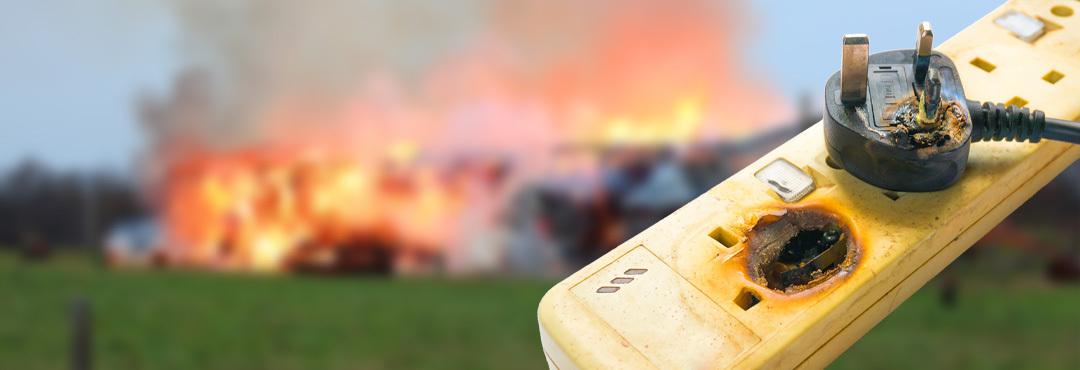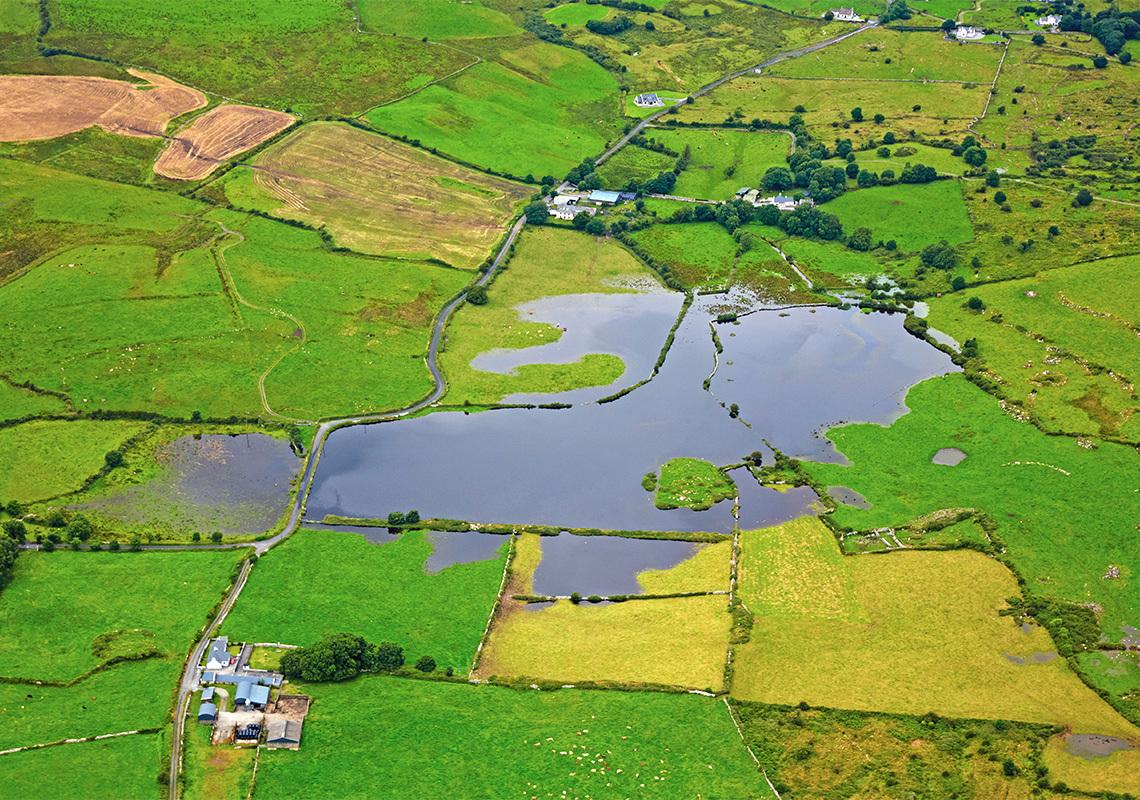Don't Risk Your Farm - Get An Electrical Inspection
Farm fires are devastating. They can take lives, destroy property, and wipe out generations of hard work. Electrical problems are a major cause of these fires, and without a valid electrical inspection certificate, your insurance claim could be denied, leaving you facing financial ruin on top of the emotional toll.
While many factors contribute to these fires, electrical problems are a significant risk.
At Farm and General, we will explore the importance of electrical safety on your farm and the proactive measures you can take to prevent fire disasters. We'll also delve into the hidden dangers lurking in older buildings and how regular inspections can safeguard your farm.
It's the Law: Electrical Inspections for Farms
The Electricity at Work Regulations 1989 make electrical safety inspections mandatory for most farm buildings. These are classified as commercial premises, requiring inspections at least every five years.
However, the final call on the inspection interval rests with the qualified electrician performing the inspection. In some cases, they might recommend more frequent inspections, especially for buildings with complex electrical systems or those housing industrial equipment.
‘Failing to comply is not just risky, it's illegal. In the worst-case scenario, someone could be electrocuted by faulty wiring, leading to serious legal trouble with the Health and Safety Executive (HSE). The emotional and financial costs of such an event would be devastating.’
The Hidden Danger of Electrical Faults:
Electrical issues like faulty wiring, overloaded circuits, or improper use of extension cords can easily ignite nearby materials, leading to devastating fires. The UK Fire and Rescue Service emphasises electrical safety as a crucial aspect of farm fire prevention, whilst a recent report by CheckFire Ltd. (2023) reveals that electrical faults are a leading cause of farm fires. While the exact percentage might vary by region, a significant portion of farm fires originate from electrical problems. These fires can cause immense damage, destroying buildings and equipment and even harming livestock.
Older farm buildings are particularly susceptible to electrical dangers, with many farm fires resulting from electrical faults in structures built before 1960. These buildings often have outdated wiring systems that may not handle the demands of modern equipment, increasing the risk of overloading and potential fire hazards.
When Was Your Last Electrical Inspection?
An outdated electrical certificate (older than five years) is a red flag for insurers. They may deny your claim entirely or offer a reduced payout, leaving you financially vulnerable after a fire. Imagine the stress of rebuilding your farm on top of the emotional trauma, all because of a simple inspection that wasn't done.
Early detection and correction of electrical problems prevent disaster and significantly reduce the risk of fire outbreaks on your farm, protecting you, your workers, and your livelihood.
Here's what you can do to safeguard your farm:
- Schedule regular electrical inspections (at least every five years) by a qualified electrician.
- Maintain detailed records of all electrical inspections and repairs.
- Invest in upgrades to your electrical systems as recommended by qualified professionals.
- Educate yourself and your workers on electrical safety practices.
- Partner with a reputable insurance company like Farmcover.co.uk to ensure you have adequate farm insurance coverage.
Having up-to-date electrical certificates (typically within the last 5 years) demonstrates your commitment to safety and fire prevention. This can benefit you by potentially lowering insurance premiums or avoiding claim denials due to outdated certificates.
Knowing your electrical systems are safe and up-to-code provides invaluable peace of mind for you and everyone who works on your farm.
Choose a Qualified Electrician
Skilled electricians have the knowledge and experience to identify hidden electrical hazards that you might miss. They can also ensure that your farm's electrical systems comply with safety regulations. Additionally, qualified electricians will provide a detailed report outlining any issues found and recommendations for repairs or upgrades. This documentation is crucial for maintaining your farm's safety and potentially meeting insurance requirements.
While a qualified electrician can provide the most comprehensive inspection, here are some risks to watch out for on your farm:
- Multi-plugs: Avoid daisy-chaining extension cords or overloading outlets with multi-plug adapters. This can easily lead to overheating and potential fires.
- Overloaded circuits: Dimming lights or buzzing outlets are signs of circuits struggling to handle the load. Reduce the number of appliances plugged in or consult an electrician to upgrade your system.
- Frayed or damaged cords: Immediately replace any electrical cords with exposed wires, cracks, or signs of fraying. These pose a serious electrocution risk.
- DIY danger zone: Qualified electricians should only perform Electrical repairs and upgrades. Leave the wiring to the professionals.
Farm and General: Comprehensive Farm Insurance Solutions
By prioritising electrical safety through regular inspections, addressing potential hazards, and educating yourself and your workers, you can significantly reduce the risk of fire on your farm. Even with the best precautions, accidents can happen. Farm and General caters uniquely for smallholders and small farms, with insurance options available for enterprises up to 100 acres tailored to your specific needs, including coverage for fire damage. This ensures you have the financial resources to rebuild and recover in case of a fire.
Our team of insurance specialists understands the unique challenges faced by farmers. They can help you navigate the insurance process, ensure you have proper coverage, and answer any questions you might have.
Don't wait for disaster to strike. Act today. Contact us to explore our farm insurance options and get a free quote. Together, let's keep your farm safe and your livelihood secure for generations to come.




